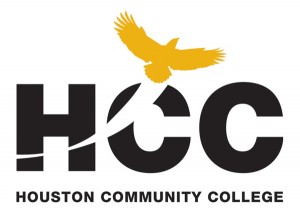 As previously reported by our friends over at the Dallas Voice, in September a Houston Community College teacher, Donny Leveston, led an in-class conversation about “Taboo: Incest and Homoeroticism” in which transgender people were referred to as “freaks” and “weirdos.” In an official response from the HCC Office of Institutional Equality the school admitted that the instructor acted insensitively and failed to show proper concern for a transgender student in the class who later withdrew from the school over the incident. Despite this, HCC found that Leveston did not violate the school’s policy against Discrimination and Harassment and will not be disciplined or required to attend training on transgender issues.
As previously reported by our friends over at the Dallas Voice, in September a Houston Community College teacher, Donny Leveston, led an in-class conversation about “Taboo: Incest and Homoeroticism” in which transgender people were referred to as “freaks” and “weirdos.” In an official response from the HCC Office of Institutional Equality the school admitted that the instructor acted insensitively and failed to show proper concern for a transgender student in the class who later withdrew from the school over the incident. Despite this, HCC found that Leveston did not violate the school’s policy against Discrimination and Harassment and will not be disciplined or required to attend training on transgender issues.
The investigation arose from a September 22 complaint from a transgender HCC student in Leveston’s class. The assigned reading, written by Leveston, included excerpts from a story describing a mother assisting her transgender daughter in preparing for a performance, including a passage in which the mother regards her daughter’s penis as a potential object of sexual desire.
The complaint alleged that during the discussion students repeatedly made anti-transgender comments and that Leveston said of trans people “I don’t care what those people do, as long as they keep it away from me.” Leveston claims that his comment was made after a student asked him “what would you do” in reference to a tribal practice of young men performing fellatio on older men in order to “step into their manhood” as described in the article, and was unrelated to the transgender community.
Upset, the transgender student left the classroom during the discussion, later e-mailing Leveston to explain why she felt his behavior was inappropriate. In response Leveston dismissed her concerns stating ““Everyone has the right to his or her own preference, just do not go trying to push your views on me. Case closed.”
Renee Mack, Manager with the HCC Office of Institutional Equality, investigated the complaint and in an official response found that, while Leveston’s behavior was inappropriate, it did not violate HCC’s policy:
“After a full investigation, the facts gathered do not support a violation of HCC Policy G.1 (Discrimination and Harassment) in that the behavior of the Instructor does not meet all three prongs of what constitutes harassment and based on the fact that the student admitted that she did not believe the Instructor acted with malice, but out of ignorance. However, this investigator does find that the Instructor failed to demonstrate sensitivity and treat this student in a respectful manner in the following ways: 1) He did not show sensitivity in choosing the articles to share with the students, though he had prior knowledge that a student who is transgendered would be in the class; 2) his email sends mixed signals by apologizing yet defending his own and the students’ rights to have their preferences and ends the comment with “case closed” in essence dismissing any further dialogue; and 3) failed to show concern for the student when she abruptly left the classroom and did not attend the next class period, yet the Instructor did not reach out to her to determine if there was a problem. Rather, it was the student who had to reach out to the Instructor.”
The findings underscore the shortcomings of HCC policies regarding transgender students. HCC’s non-discrimination policy includes sexual orientation, but not gender identity and expression. Lesa Spivey, director of public relations and media at HCC claims that the inclusion of “sex” and “gender” in the policy covers the trans community, but last year the HCC united student council disagreed. That body passed a resolution calling on the HCC system to adopt a nondiscrimination policy that explicitly covers gender identity and expressing. The HCC Board of Regents has failed to act on that resolution.
While the acknowledgement by HCC that the actions of Leveston were inappropriate is heartening, the school’s unwillingness to take steps to insure that no other student is placed in the same situation is disappointing. Further, the idea that discrimination can only happen if it involves “malice” is preposterous. Unintentional discrimination caused by ignorance is far more prevalent that the overt variety. Education is the solution. For HCC, an institution purportedly dedicated to learning, to acknowledge that Leveston’s actions were caused by ignorance and not take steps to provide him with education on the topic betrays an institutional unwillingness to take the issue seriously.
The student who lodged the complaint says she has mixed feelings about the schools response. “I’m grateful that the school recognizes that there’s a problem with that teacher,” she said, “but I’m not going to return to HCC. What happened to me in that classroom has changed the way I feel while at the campus. I’ll be attending San Jac [San Jacinto College] in Pasadena next semester. They have a very clear non-discrimination policy that is explicitly inclusive of transgender people.”















